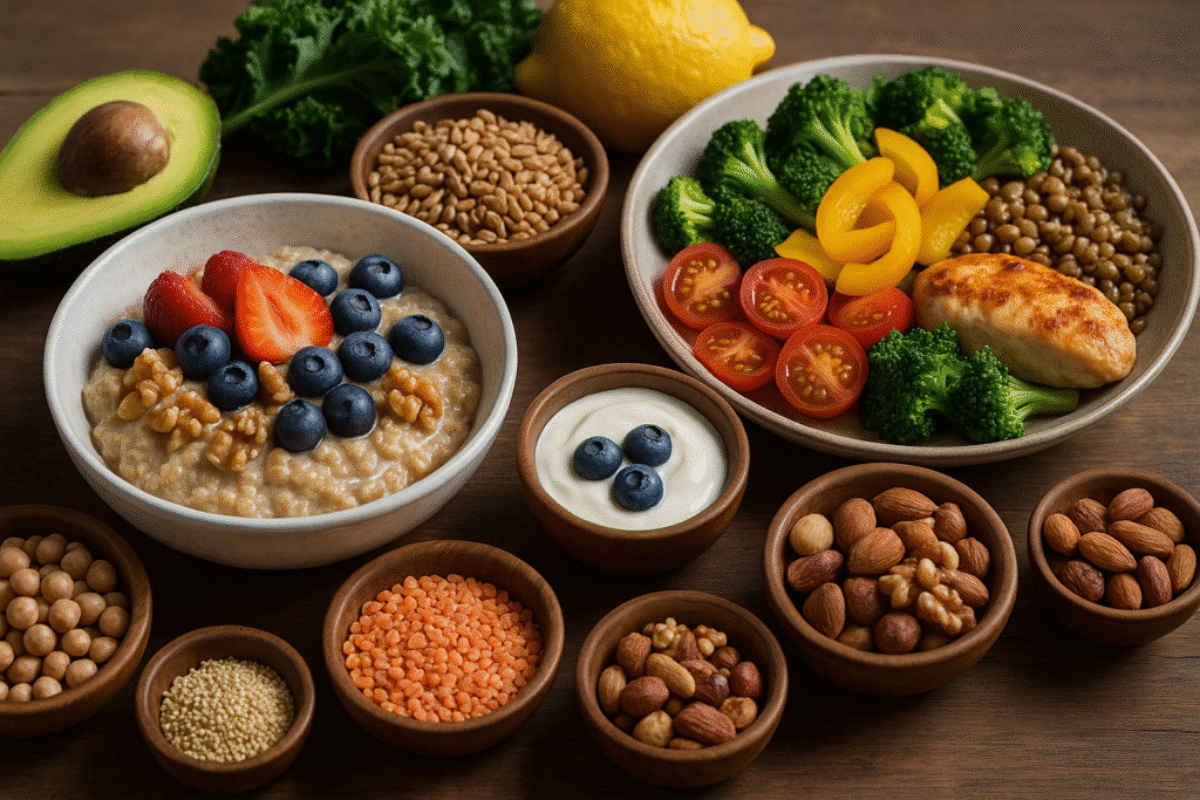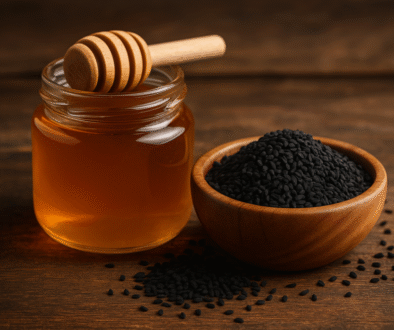The Science-Backed Truth About Healthy Eating: Sustainable Strategies That Work
Imagine this: You’ve tried every diet trend – keto, paleo, calorie counting – only to end up back where you started, feeling frustrated and defeated. You’re not alone. Less than 1% of people consistently follow healthy eating guidelines in the US and UK. Why? Because traditional dieting approaches are fundamentally flawed. Groundbreaking research reveals a better path: healthy eating that’s both sustainable and enjoyable. By the end of this post, you’ll discover evidence-based strategies from top scientists at Stanford and King’s College London that actually work – no restriction required.
What Is True Healthy Eating? (Hint: It’s Not What You Think)
Healthy eating isn’t about short-term diets or deprivation. According to leading researchers like Professor Christopher Gardner (Stanford) and Dr. Sarah Berry (Zoe, King’s College London), it’s a lifelong approach centered on nourishing your body with delicious, whole foods. The biggest myth? “That there is one diet for everyone,” states Gardner.
The problem with temporary diets is simple: They only work while you’re on them. When you stop, weight, cholesterol, and blood glucose rebound. True transformation requires a permanent shift to enjoyable whole foods. As Berry emphasizes: “If a food’s too healthy to be enjoyed, it’s just not healthy at all.” Sustainable healthy eating hinges on this principle.
The Science: Evidence-Based Nutrition Insights
Recent research revolutionizes our understanding of healthy eating:
-
Rapid Results Are Possible: Significant improvements in cholesterol, blood glucose, and inflammation can occur in just 4-8 weeks with proper dietary changes (Stanford twin study).
-
Age Is No Barrier: Adopting a longevity-focused pattern even at age 60+ can add healthy years to your life (Zoe longevity research).
-
Restriction Backfires: Highly restrictive diets (keto, carnivore) rank lowest for heart health due to low fiber and high saturated fat content (American Heart Association analysis).
-
Personalization Matters: Landmark research shows 20-fold differences in blood sugar responses to identical meals, proving one-size-fits-all approaches fail (Zoe PREDICT studies).
-
Processing Harms Health: Ultra-processed foods drive overconsumption (+200 calories/day) by bypassing fullness signals (NIH study).
4 Science-Backed Healthy Eating Strategies
Transform your approach with these sustainable tactics:
-
Prioritize Whole Food Deliciousness
Shift from restriction to addition. Focus on nutrient-dense, minimally processed foods: wheat berries > white bread, brown rice > white rice. Whole foods retain fiber that slows digestion and enhances fullness. Chef-inspired “Unapologetic Deliciousness” makes healthy eating sustainable. Actionable tip: Replace sugary cereal with steel-cut oats topped with berries and nuts. -
Adopt Plant-Powered Plates
Make plants the foundation (70-80% of your plate) without eliminating animal foods. Build meals around beans, lentils, whole grains, and colorful vegetables using global spices for flavor. This pattern naturally boosts fiber and reduces saturated fat. Actionable tip: Swap large steaks for lentil stew with a small chicken portion. -
Embrace Smart Fats
Ditch fat-phobia. Healthy fats from avocados, olives, nuts, and seeds come packaged with fiber and nutrients. Avoid “low-fat” traps where sugar replaces fat. Full-fat fermented dairy often has neutral/beneficial effects. Actionable tip: Replace sugary low-fat yogurt with full-fat Greek yogurt + berries. -
Personalize Your Approach
Recognize bio-individuality through these key adjustments:-
Timing: Try 12-hour overnight fasting windows
-
Pacing: Eat slowly (pause between bites)
-
Sleep Quality: Prioritize 7-9 hours nightly
-
Experimentation: Test 5 alternatives when replacing unhealthy foods
Pro tip: Use Zoe’s personalized program to understand your unique needs.
-
FAQ Schema for Healthy Eating:
-
Q: Is it too late for me to improve my diet if I’m over 60?
A: Absolutely not! Research shows switching to a healthier pattern like a longevity diet even at age 60 can significantly increase your number of healthy years. Your body can respond positively at any age. -
Q: How quickly can I see health benefits from changing my diet?
A: Positive changes in key health markers like cholesterol, blood glucose, and inflammation can often be detected in as little as 4-8 weeks with meaningful dietary improvements. -
Q: What does “whole food” actually mean?
A: Whole foods are minimally processed and close to their natural state. Think fruits, vegetables, whole grains (like oats, quinoa, brown rice – intact or as whole grain flour), beans, lentils, nuts, seeds, eggs, fish, and meat (without lots of processing). Avoid highly refined items like white flour, white rice, and products with long ingredient lists full of additives. -
Q: Do I have to go vegan to eat healthily?
A: No. A healthy eating pattern is primarily plant-based, meaning plants are the foundation. You don’t need to eliminate animal products entirely, but significantly reduce them (especially red/processed meats) and focus on plants for the bulk of your meals. Think Mediterranean-style patterns. -
Q: Is calorie counting necessary for healthy eating?
A: Generally, no. Focusing on whole, minimally processed foods high in fiber and protein naturally promotes satiety and helps regulate calorie intake without counting. Calorie counting often ignores food quality and is hard to sustain long-term. Learn more about why calorie counting often fails.
Your Journey Starts Now
True healthy eating isn’t about perfection – it’s about progression. As Professor Gardner advises: “Be kind to yourself… Enjoy the journey.” By focusing on delicious whole foods, plant-powered plates, smart fats, and personalized adjustments, you’ll build sustainable habits that enhance your health at any age.
Ready to transform your approach to healthy eating? Discover your personalized nutrition blueprint with Zoe’s FREE gut health guide or explore our science-backed program.
-
Internal Links:
-
External Links:



